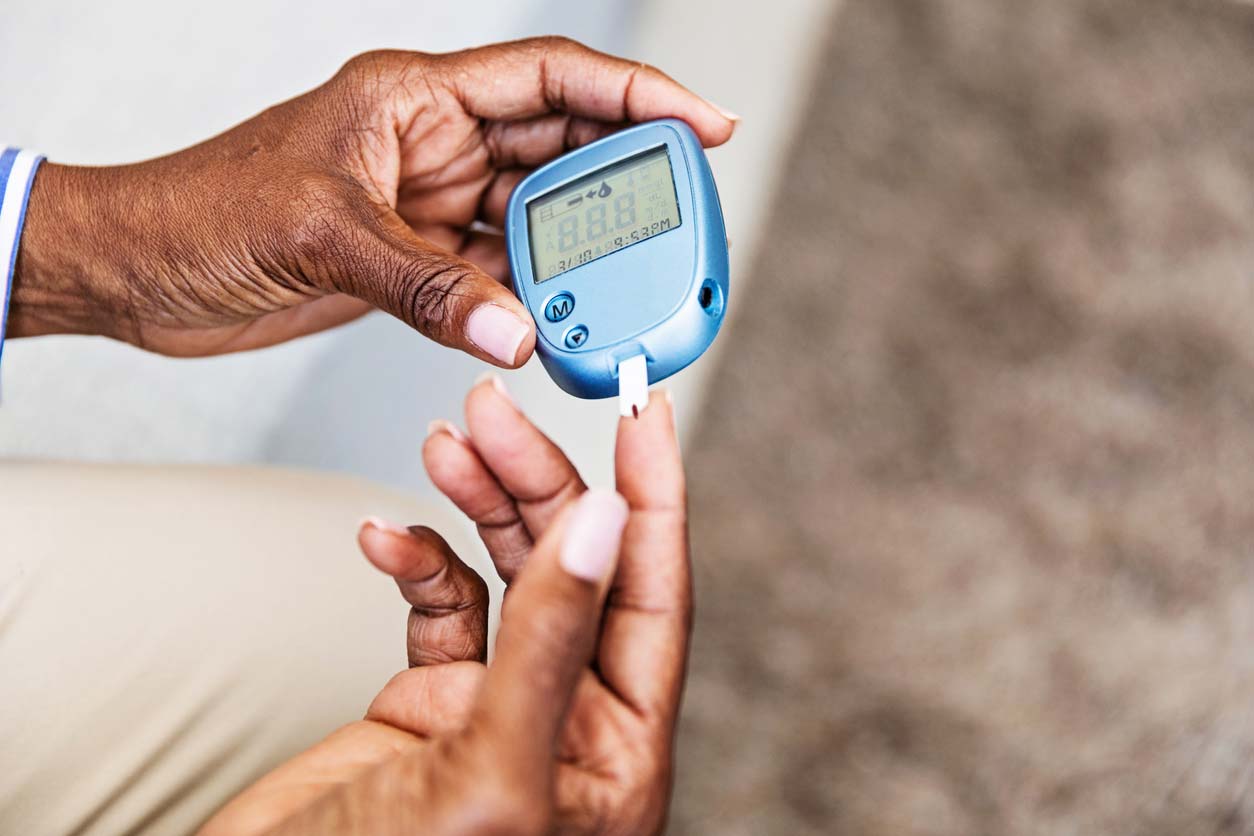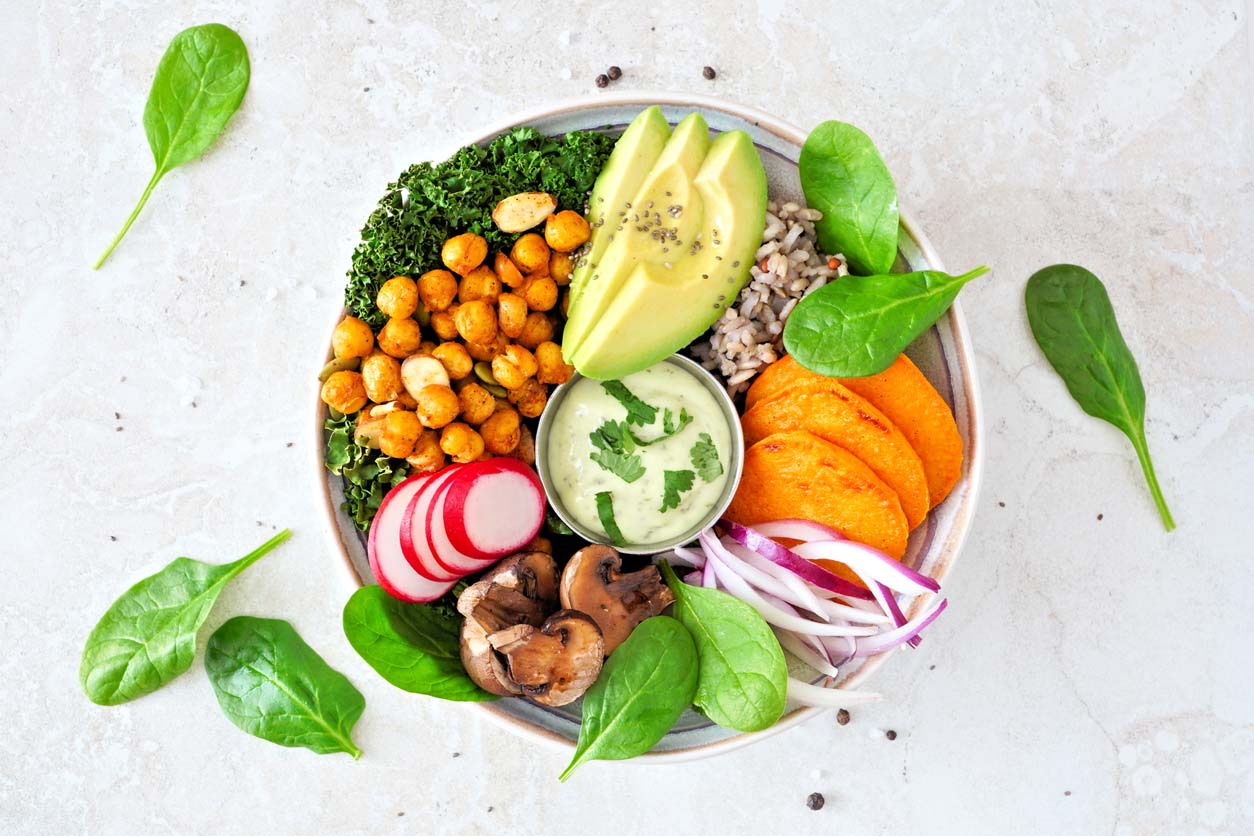B vitamins refer to a group of 8 different vitamins that make up what’s often called
the B-complex. The B vitamins are:- thiamin (vitamin B-1)
- riboflavin (vitamin B-2)
- niacin (vitamin B-3)
- pantothenic acid (vitamin B-5)
- pyridoxine (vitamin B-6)
- biotin (vitamin B-7)
- folate (vitamin B-9)
- cobalamin (vitamin B-12)
This group of vitamins helps your body convert food into energy — also known as the process of metabolism — as well as create new blood cells. They’re also important for the maintenance of healthy skin cells, brain cells, and other body tissues.
Like vitamin C, the B vitamins are water-soluble, which means that they dissolve in water. Unlike the fat-soluble vitamins A, D, E, and K, which are best absorbed when ingested alongside dietary fats, the water-soluble vitamins can be taken with water, and then used by your body. Bacteria in the intestinal tract of animals produce B vitamins, which is why prevailing wisdom has recommended eating animals to get our daily requirements. This isn’t necessary, as many plants also contain these nutrients (see below for examples).
B Vitamins in the Gut
Recently, however, scientists have discovered that bacteria in the human microbiome themselves generate B vitamins. This makes logical sense, given that humans are in fact animals, but there are a couple of reasons that we can’t rely on our internal B factories for all we need.
First, not all guts produce these compounds equally. Second, we absorb B vitamins in the small intestines, but the bacteria that manufacture these vitamins are in the large intestines. Since the large intestines are the next to last stop on the poop train, it’s not clear how fully and efficiently those vitamins get to their absorption sites. For these reasons, many of us need to be intentional with our dietary sources of B vitamins to make sure we’re getting enough. But luckily, most of the B vitamins are typically found together in food.
8 Benefits of the 8 B Vitamins

Each of the B vitamins plays an integral role in maintaining your health and making sure your body functions properly. Below are some of the most important benefits of B vitamins; individually and collectively.
1. Protect Against Diabetes
Getting enough B vitamins is important for regulating your blood sugar. Lower levels of B-1, B-6, and B-7 have been observed among people with diabetes, and supplementing these has been shown to help improve metabolic control. Additionally, pharmaceutical doses of B-1 and B-3 may be useful to prevent kidney and cardiovascular complications in people with type 2 diabetes. The absorption of B-9 and B-12 may decrease with the use of metformin, a very common drug used to help manage blood sugar in type 2 diabetes. This demonstrates the importance of making sure you’re getting enough B-9 and B-12 if you have type 2 diabetes or other conditions that require close monitoring of your blood glucose.
2. Protect Against Heart Disease
Vitamins B-6, B-9, and B-12 help reduce levels of the amino acid homocysteine, which contributes to increased cardiovascular disease risk when elevated (called hyperhomocysteinemia, and worth 8 gazillion points in Scrabble). These B vitamins improve vascular endothelial function and help keep your blood vessels dilated, which supports healthy circulation and is good for your heart. Vitamins B-3 and B-5 can increase HDL “good” cholesterol while lowering LDL “bad” cholesterol and triglycerides, which can also improve heart health. In fact, B-3 is so effective at lowering cholesterol it was referred to as “the granddaddy of cholesterol-lowering drugs” by Harvard Medical School. It wasn’t until the first actual drug for this purpose — lovastatin — was introduced in 1987 that the use of niacin for cholesterol stopped being the standard of care in clinical settings.
3. Protect the Brain and Prevent or Treat Alzheimer’s Disease
Getting enough of vitamins B-2, B-6, B-9, and B-12 can help prevent cognitive decline and even the development of Alzheimer’s disease. Some observational studies have found an association between low serum folate (B9) levels, worse cognitive function, and a higher risk for Alzheimer’s. And low serum B-12 is also associated with poor brain function. B-2 is known to help alleviate both the frequency and severity of migraines. In one study, high dose supplementation of B-2 for 6 months resulted in a 50% reduction in headache frequency and severity. And vitamin B-1 is a key factor in protecting against alcohol-related dementia, as it can prevent the accumulation of iron deposits in the brain that leads to deterioration. B-1 may also have the potential to help people with mild Alzheimer’s, according to a recent small exploratory clinical trial published in the Journal of Alzheimer’s Disease.
4. Protect Against Cancer
Getting your B vitamins may boost protection against certain cancers. Research shows vitamins B-2, B-9, and B-6 may work against cancerous tumors when applied to lymphoma cells in a lab setting. Vitamin B-6 may also reduce the risk for lung cancer. In one study, researchers followed 159,232 women for 18 years and found that women who took at least 50 mg per day of supplemental vitamin B-6 had a 16% reduction in lung cancer risk compared to those who did not take the vitamin.
And while a 2017 study suggested that vitamin B-12 supplementation might actually increase lung cancer risk among men, data from many randomized controlled trials have found that there’s no reason to believe B-12 supplementation has any adverse effect.
Furthermore, a small study among 400 Canadian women found that supplemental B-9 and B-12 could reduce the risk for breast cancer, particularly among those with BRCA1 mutations.
5. Improve Mood
All B vitamins — and especially B-6, B-9, and B-12 — seem to help prevent depression, stress, and anxiety. A 2019 meta-analysis and review of 16 studies concluded that, when compared to a placebo, B vitamin supplements appear to be helpful in improving overall mood and reducing stress, especially among people at higher risk for poor nutrition or mood status.
6. Protect Against Birth Defects
The B vitamins are also crucial for supporting a healthy pregnancy and normal fetal development. Getting enough B-9 and B-12, in particular, is known to prevent neural tube defects like spina bifida, in which a baby’s spine and spinal cord don’t form properly. This is why it’s standard practice to educate mothers-to-be on supplementing folic acid and eating folate (B-9)-rich foods, like dark leafy greens, lentils, and oranges, during pregnancy, to meet their minimum 400 micrograms per day requirement of this nutrient. In addition, some research suggests that vitamin B-3 may help bypass genetic mutations that can cause certain birth defects or an increased risk of miscarriage.
7. Balance Hormones
B vitamins have many roles within the reproductive system and may help naturally maintain hormonal balance. Many women find success with supplemental vitamin B-6 for alleviating nausea associated with morning sickness, as well as reducing symptoms of premenstrual syndrome. And vitamins B-3 and B-5 are needed for the production of hormones in the adrenal glands, such as sex and stress hormones.
8. Keep Nails, Hair, and Skin Healthy
All of the B vitamins may work together to keep your hair, skin, and nails healthy, but B-7, B-9, and B-12 may be especially helpful. Biotin (B-7) deficiency often presents as brittle nails, hair loss, and skin rash, and while evidence is mostly anecdotal, biotin supplementation is often used in hopes of improving these conditions. Changes in your nails are often the result of micronutrient deficiencies, including an array of B vitamins. In fact, a B-12 deficiency may show up as entirely blue nails or other dark pigmentations. And a folate (B-9) deficiency can cause your nails to become brittle and rigid.
Testing for Vitamin B Deficiency
A person may sometimes have a B vitamin deficiency diagnosis and obtain treatment based upon clinical findings and a response to treatment, rather than specific testing. But a blood or 24-hour urine test is usually done to confirm any suspicions if an individual is at high risk.
If you show concerning symptoms — like a rash, anemia, numbness, tongue inflammation, or abnormal fatigue — it’s more likely that testing should be done to diagnose what’s going on. Or, if you have a condition that puts you at a higher risk for vitamin B deficiency, like alcoholism, malnutrition, or a malabsorption disease, testing may be indicated.
Test results may show that you have less than optimal levels of certain B vitamins, but can’t necessarily tell you whether it’s because of a lack in your diet or an inability to properly absorb the vitamin. However, they do give your health care provider a place to start when determining the best plan forward to treat the deficiency and underlying cause.
Sources of B Vitamins

Now that you know how important getting enough B vitamins are to your health, where can you find them? Fortunately, there are many sources of B vitamins in whole foods that you may already enjoy — or can easily incorporate into your diet.
B Vitamin Food Sources
You can find most B vitamins in animal products, like meat, fish, eggs, and dairy. But some of the best sources are plant-based and include whole grains, legumes, seeds, nuts, leafy greens, fortified foods, bananas, mushrooms, avocado, potatoes, sweet potatoes, and broccoli.
More specifically, below are some of the best places to find each of the 8 B-complex vitamins from plant-based foods:
- Vitamin B-1: beans, peas, lentils, and sunflower seeds.
- Vitamin B-2: almonds, tofu, mushrooms, avocado, and spinach.
- Vitamin B-3: brown rice, nuts, seeds, legumes, and bananas.
- Vitamin B-5: mushrooms, avocado, nuts, seeds, potatoes, brown rice, oats, and broccoli.
- Vitamin B-6: chickpeas, dark leafy greens, papayas, bananas, oranges, and cantaloupe.
- Vitamin B-7: sweet potatoes, nuts, seeds, and avocado.
- Vitamin B-9: dark leafy greens, beans, peanuts, sunflower seeds, and oranges.
- Vitamin B-12: fortified nutritional yeast and breakfast cereals, as well as enriched plant-based milks and yogurts.
B Vitamin Supplements
Most of the B vitamins (other than B-12) are in a variety of whole foods. But you may want to supplement with certain ones if you don’t think you get enough from your diet, or if you fall into a category of people who may be at higher risk for deficiencies.
You may want to consider supplementing with folic acid — the more bioavailable synthetic form of folate — if you fall into a group that’s at higher risk for folate deficiency, like pregnant women and people with a history of chronic alcohol use.
Vitamin B-12 also deserves extra attention because it’s harder to get from plant foods. Still, it’s not just plant-based eaters who are at risk. In fact, one study conducted a while back by researchers at Tufts University found that nearly 40% of Americans (including omnivores) may be deficient in this B vitamin. As such, supplementation is recommended for most people, especially vegans. For more on B-12 see our article here.)
If you choose to supplement, you’ll most often find all the B vitamins combined as a B-complex. Alternatively, you can get individual supplements for each of the B vitamins, but this isn’t usually necessary. The exceptions are if you know you’re deficient in certain ones or are wanting to maximize a specific B vitamin and not the others.
It’s also worth noting that if you choose to take a daily multivitamin with minerals, it likely contains all the B vitamins.






Комментариев нет:
Отправить комментарий